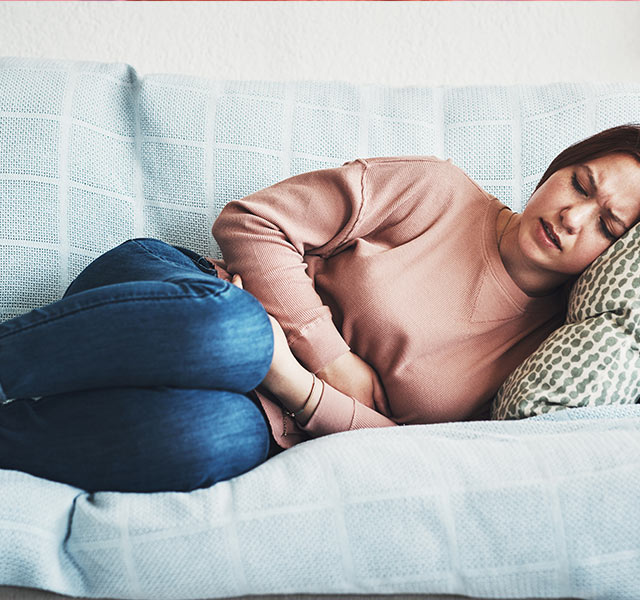Managing irritable bowel syndrome (IBS) can be tricky. People with IBS often have complaints of abdominal pain, diarrhea, constipation and bloating, but they do not actually have an identifiable disease of their stomach, colon or small bowel, says Kimberly Tosch, M.D., a gastroenterologist with Henry Ford Health.
While the root cause of IBS is unknown, and there is no cure, there are known triggers that could potentially worsen symptoms. Here, Dr. Tosch shares what you might be doing (or not doing) that could contribute to IBS flare-ups.
- You’re not exercising. “A recent study showed that IBS patients who participated in 60 minutes of vigorous activity three to five times a week had improved IBS symptoms, compared to those who didn’t,” says Dr. Tosch. Go for long walks, take up running. If you sit at a desk all day, take a few minutes periodically to get up, walk around and stretch.
- You’re stressed out. “Stress, anxiety and depression can trigger IBS,” says Dr. Tosch. “Some patients who have abdominal pain are treated with antidepressants, which has been shown to improve symptoms. There is a mind-gut connection.”
- You’re eating too many cruciferous vegetables. Crunchy vegetables like cauliflower, broccoli and cabbage are gas producing. “While they are healthy, you may have unwanted side effects after eating them,” she says.
- You’re drinking too much caffeine and alcohol. “Caffeine and alcohol can affect your stomach quite a bit,” says Dr. Tosch. “Overindulging can trigger stomach discomfort.” She recommends having no more than two caffeinated beverages daily and minimizing alcohol as much as possible—no more than a few drinks per month.
- You’re not eating small, frequent meals. Instead of eating three large meals a day, Dr. Tosch says it’s recommended for those with IBS to eat around six smaller meals a day for improved digestion.
- You’re eating too quickly. On that note, eating slowly is also important. If you eat quickly, you may have a tendency to overeat and your stomach will feel bloated and distended. Chewing thoroughly also makes for better digestion.
- You’re taking a medication that’s making it worse. “I sometimes tell patients to stay away from ibuprofen (like Advil® or Motrin®) and naproxen (like Aleve®) because they can cause stomach discomfort,” says Dr. Tosch. “Over long periods of time, they can cause ulcers. If you need something for pain, Tylenol® (acetaminophen) is the best option.”
- You’re eating foods you’re sensitive to. The elimination diet helps to identify foods that are causing distress. “Usually it starts with avoiding dairy for two to four weeks, and if that doesn't work, we’ll move down the list to omitting gluten, and then gas-producing foods,” says Dr. Tosch. “If that doesn’t work, we’ll try the low FODMAP diet for a few months.” The low FODMAP diet is an acronym—it’s a very specific list of foods that are low in certain types of sugars that can be difficult for the body to break down.
Before you try any specific diet or make modifications to your routine, it’s best to talk to your doctor.
To find a doctor at Henry Ford, visit henryford.com or call 1-800-HENRYFORD (436-7936).
Dr. Kimberly Tosch is a gastroenterologist who sees patients at Henry Ford Hospital and Henry Ford Medical Center - Lakeside.



